What follows is a spoiler laden discussion of the book The Gods Themselves. Beware if you’re worried about such things.
 In the late 21st century, humans were contacted by beings from another universe. These beings provided what looked to be the answer to Earth’s energy problems: an endless source of power with only minimal side-effects. A consequence of this development was the near canonization of the man who happened to be there when the contact was made, and many scientists (more worthy, at least in their own minds) resent this. Thus there is much to be gained by someone who can discover and prove that the “electron pump” is not nearly as perfect as it’s been made out to be.
In the late 21st century, humans were contacted by beings from another universe. These beings provided what looked to be the answer to Earth’s energy problems: an endless source of power with only minimal side-effects. A consequence of this development was the near canonization of the man who happened to be there when the contact was made, and many scientists (more worthy, at least in their own minds) resent this. Thus there is much to be gained by someone who can discover and prove that the “electron pump” is not nearly as perfect as it’s been made out to be.
K: We’ve both just finished The Gods Themselves by Isaac Asimov, the next winner in our Nebula list. Considering Asimov’s relative fame, it’s about time he showed up in the list! As far as I can tell, this book is a stand-alone unrelated to any of the series he worked on. Its plot centers around something called the “Electron Pump”, which has been established recently on Earth as a pretty much limitless source of energy. The book is divided into three sections which all tell parts of the story but which are only pretty loosely tied to one another.
J: Yea, in a way it was like reading 3 short stories. Or maybe novelettes. Not sure how long they all were individually. It felt to me kind of like reading Connie Willis (only more boring), followed by James Tiptree, followed by hrm.. not really Samuel Delany, it wasn’t weird enough by half. In short, they were all quite different in tone, POV, plot, everything.
K: They were definitely longer than short stories. And I can’t really compare them to most of those authors, though I have to disagree with your assessment about their differences. Part 2 was definitely distinctly different, but parts 1 and 3 were very similar, even though they focused on different characters.
J: Oh, they were definitely fairly similar. But they didn’t fit the same pattern. Part 1 was ‘scientists blather on about something’. Part 3 was ‘living on the moon is weird’. It actually surprised me when they were on the moon. Was there any hint in part 1 that there were people living on the moon?
K: See, that’s not how I read part 1’s pattern. To me, part 1 was ‘academic infighting’. And part 3 was ‘academic infighting on the moon’. So they were the same, just the scenery was different. I can’t say as I had picked up in part 1 that there was a lunar colony, though, no.
J: Should we take this in sections and talk about part 1 first?
K: Let’s. So part 1 we have a young scientist who has managed to tick off Dr. Hallam, who has managed to accrue all of the credit for ‘inventing’ the “Electron Pump”. As a result he has enormous influence and can easily ruin careers. The young guy is understandably annoyed at this so decides he’s going to try and find a flaw in the Electron Pump and bring down Hallam.
J: If you say so. No, I mean, I followed the plot okay. It was just so dull. It was a lot of talking heads. Except once I think someone pulled an orange out of his pocket to eat it. And while it wasn’t quite ever ‘as you know, Bob’, it was darned close to that for most of the first few sections. And the only woman in the whole section was a ‘graduate student’. So, yay for being a graduate student. But she was only mentioned as someone’s date. And we never see her or anything. It briefly got interesting when they were talking to people on the other side of the pump, but I was quite ready to speed read my way through the rest of the book if it was going to go on like that. It seemed to be all idea and no substance.
K: I agree it was not interesting as presented. I thought the idea of the pump was interesting, and I had to read it a few times before I had that settled in my head, but the characters were indistinguishable from one another. Completely. Pete and Myron and Bill and Bob and whatever. In my head they were all nerds in white shirts with ties and pocket protectors. I was both annoyed and disappointed to see that Asimov’s imagination couldn’t stretch far enough to include any women among the scientists at all — I just skimmed through and couldn’t spot the graduate reference, but my feeling is she wasn’t a scientist at all but some kind of humanities student. But that’s it. The senator? A dude. The environmental activist? A dude.
J: I don’t think what she’s a graduate student in is ever stated or implied. So yea, I definitely wouldn’t give him any credit for making her a science student. He only gets points for not calling her a ‘coed’. And I had a hard time telling everyone apart too. Their characters were entirely defined by their relationship to this Pump idea. The scientific underpinnings of which I didn’t think about too hard. I trust Asimov to know his physics better than me. And if I wasn’t going to pick apart the science, then no reason to think about it too much. ;)
K: I suppose not. There’s plenty to pick apart otherwise. This whole section is meandering and unfocused; it seems to have two or three or even more primary purposes: One, to establish the history of the Electron Pump and how Dr. Hallam opportunistically came to power in scientific circles. Two, to float the possibility there may be soemthing wrong with the idea. Three, to engage in a confusing philosophical discussion of whether or not the entities in the para-Universe are smarter than humans or simply more technologically advanced. Four, to randomly talk about linguistic challenges. Five, to make you fall asleep. There were a lot of ideas packed in here which weren’t really given a chance to flourish — instead, they were all treated in the most cursory and boring way possible.
J: He did a good job on Five then! I have to say that Part 1, if it had been the entirety of the book, would’ve made me seriously question what the SFWA members were thinking when they nominated it, let alone voted it to win.
K: I’d have to agree with you there! Are you ready to move on to section 2?
J: Yup. Part 2 was just soooo much better. Not that it didn’t have things I take issue with. But at least it was interesting!
K: Part 2 was a big surprise for me, considering part 1. In part 2 we shift entirely to the para-universe and it suddenly starts feeling like a science fiction novel instead of something set in amongst present-day whiny scientists. There were definitely some issues I had with this section, but it fired the imagination in a way that neither part 1 nor part 3 did for me.
J: Yea, exactly. It was different. And that part of why it was different was it was doing interesting sex and gender stuff only helped make it interesting to me personally. As a bonus, I could like the characters.
K: I’m not sure if the characters were really three dimensional enough for me to like them, though I definitely was interested in them, and what they were going to do. I was also interested in their world, their species, and everything that was going on there. I liked the way Asimov tried to come up with a species that had three genders required for reproduction rather than just two; a lot of times authors will just throw the fact out there without actually explaining it. For me, that doesn’t work, because I have a difficult time imagining it. Here, we don’t have a lot of details, but enough to let you grasp the concept.
J: Not that I could adequately envision what they even looked like… Translucent blobs is the best I can come up with. I do take objection to which of the sexes he chose a male pronoun for and which the female. :P
K: That’s about what I came up with, though initially I had been confused by Asimov’s references to the ‘surface’ into thinking that they were living in water – hence my conflating them with jellyfish. By the end, it sounded more like they were living underground in some caves filled with air, but I still wasn’t positive. And, in fact, it didn’t really matter much. I think translucent, amorphus blob is enough.
K: And I also was annoyed by his assignment of genders. Even though he made up for it a little by having the ‘female’ be smart and brave, she was clearly depicted as being unusual; in fact the narrative makes a point of noting that the vast majority of “Emotionals”, as the females are called, are completely uninterested in anything useful beyond chattering and gossip.
J: And flirting/preening. I think the literal definition of female is the one who provides the egg. Which there didn’t seem to even be. Unless it was the Rational’s ‘seed’ that was the egg. In which case he should be the female. Either that or the incubator should’ve been the female. I don’t see how the catalyst or whatever she is would make her female. And yet.. that the two ‘males’ got together first and were flirting and whatnot was very appealing. So I would hate to have that go away by getting the pronouns more accurate.
K: Maybe, but I think here was very definitely a place where some new pronouns might have done some good. Since the assignment of ‘male’ and ‘female’ seemed otherwise arbitrary (Asimov does get points for giving the ‘Parental’ unit a male pronoun) and unrelated to our concepts of ‘male’ and ‘female’. Did he think he was being daring by having Dua, the female, essentially be the heroine of this section of the story? Would it have been different if Odeen, the intellectual male, had been an intellectual female instead, and Dua had been a male?
J: Definitely would’ve been different. Better, I dunno. There is at least one scene where Odeen’s telling her something about the para-universes and stuff and I’m thinking.. here we go again. Instead of ‘as you know, Bob’, it’s more of.. let me deliberately set someone up as the person who needs things explained to her. The role of the sidekick or lab assistant in many things. Like Robin in the 60’s Batman.
K: Yes, very convenient, that. But if you’re going to do an infodump of that nature, you really almost have to set it up that way, somehow. Because otherwise it’s just one char pontificating and all the others telling him/her to shut up, a la Brainy Smurf. I’m willing to cut a lot of slack for section 2, in spite of its defects, because I was really fascinated.
J: Yea. I was left very disappointed when we never hear about them again! Grr!
K: That was… pretty strange. It definitely contributed to the disconnected feeling between the three sections. I fully expected that after we got the backstory on the messages from the para-Universe we’d return to Earth where Lamont and that other guy were attempting to communicate with the aliens. But that’s not at all what we got.
J: Yea. We didn’t really get anything wrapped up at all. At least in my view. So in regards part 3, suddenly we’re back in our universe, but on the moon. And we get another girl! Who’s a tour guide. Sigh. Which means she gets to do a bunch of explaining about how people live on the moon. But then that gets flipped and Mr. Earthman gets to explain about the para-universes and stuff to her. And actually in this section, I do have things to say about the science. Or, at least about the science fiction.
K: Bra-less tour guide. Because everything’s more perky on the moon! And the moon people are naked, because uh, everything’s more perky on the moon? Rebelling against the (earth)man? It’s not really explained why to me. And don’t even get me started on her being named Selene. She even notes how lame it is to be named that in the text! So why do it?
J: Because the name is sex-ay. It’ll be interesting to see at what point in history we stop getting societies who like wandering around naked. Yea, no, just because your environment is pleasant doesn’t mean being naked is A) practical and B) something society is really dying to do given the first chance. As for her boobs, they are mentioned in nearly every, single, freaking scene. She brushes lint off one at some point! Why? Because… because she has boobs! Moon boobs!
K: And again, we have a girl who has been apparently bred to be magic somehow. But instead of lucky like in Ringworld, Selene’s superpower is intuition. But it’s a secret! So she has to stay a tour guide. ’cause some guy told her to. She couldn’t possibly become a scientist on her own and discover things.
J: Oh yea, that really ticked me off. And I made the same comparison to luck girl from Ringworld. Only now with the added bonus of intuition being a typically female trait already.
K: I was really puzzled by Dr. Neville, our lunar physicist. He was just so incredibly arrogant and snotty for no apparent reason. Egotistical with no justification, because he certainly wasn’t as smart as he thought he was. We’re given no reason at all to understand why Selene would listen to such a person, let alone sleep with him.
J: Yea. And then seemingly out of nowhere, we learn he wants to take the moon out into space.
K: I have to admit, I was pretty amused when the two Earth guys are all ‘yeah, so what?’
J: I can’t say as I was amused. I was boggling. Here I was trusting Asimov to have his science right and.. he didn’t foresee any problems to Earth with not having a moon suddenly? That’s sort of the whole plot to at least one series of books! Susan Beth Pfeffer’s books. And I’m pretty sure there’s a crappy sci-fi TV movie or miniseries with that as its focus too. Yea, no, I think we likes the moon right where it is. Preciousss.
K: Obviously there would be repercussions if the moon left, but in terms of what was being talked about here it was a moot point. In any case, I never felt that they really thought he was going to get to do it — they called his bluff, because really, he would never have been permitted to do it. By the Lunarites on the one hand, and frankly, by the Earth governments. We don’t really see much of government or the military in this book; there are vague references to some kind of crisis that killed 2/3rds of humanity, but we never find out what happened. Still, they surely exist and would step in if needed.
J: It was a world-wide war over who got tenure. Yea.. I dunno. I felt like this last part rambled more than the other ones. Did we need to see the gymnastics routine? No. Though I guess it’s better than people talking in offices.
K: I got the impression that, aside from the central section, which was very well structured and had development, that the beginning and the end just were kind of rambling onto whatever topic he thought might be interesting to discuss. The difficulty in speaking to a completely alien species? Sure. The effects of moon gravity on the human female form? Sure. The effects of gravity on sports and athletics? Sure. Jackassery in academia? Sure. But it was all very loosely tied together.
J: Yea. Which leaves me coming back to.. why did it win? But I guess we’ve had worse. Or at least books on par with it.
K: I dunno. I’d like to say it won for section 2, but who knows. People could have been really enthused by the idea of the energy pumps.
J: Or the boobs. Oh yea.. do you know why they couldn’t have sex? I couldn’t quite work it out. Was it because he’d be uncoordinated in low gravity or because her bones would break too easily under his superior Earth muscles?
K: I think it was a combination of both. That he would overcompensate because he was used to having sex in higher gravity and she would get broken. Plus he’s way older than her and all saggy, though that doesn’t seem to enter into it.
J: Now you’ve got me picturing the saggy, baggy elephant. :)
K: Hahaha.
J: I wish I could say something optimistic about our next one, but it’s Rendezvous with Rama by Arthur C. Clarke. Which just makes me fear some sort of mix between Ringworld and The Gods Themselves. But with any luck, nobody will be naked.
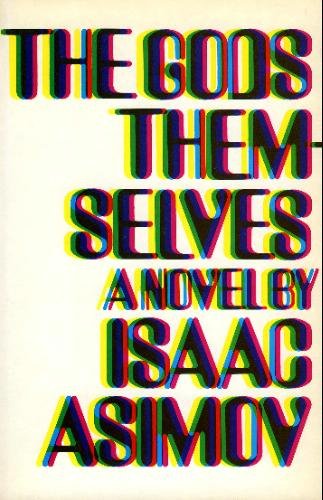

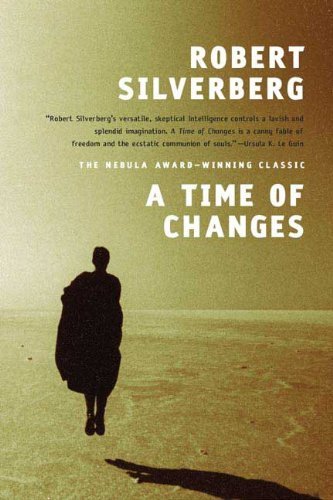
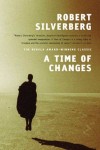 When a man from Earth introduces prince-in-exile Kinnal Darival a telepathic drug from Kinnal’s own planet, he has a revolutionary epiphany. He takes the subversive and obscene step of writing his autobiography — in the first person, as part of a crusade to share this drug and this worldview with others.
When a man from Earth introduces prince-in-exile Kinnal Darival a telepathic drug from Kinnal’s own planet, he has a revolutionary epiphany. He takes the subversive and obscene step of writing his autobiography — in the first person, as part of a crusade to share this drug and this worldview with others. 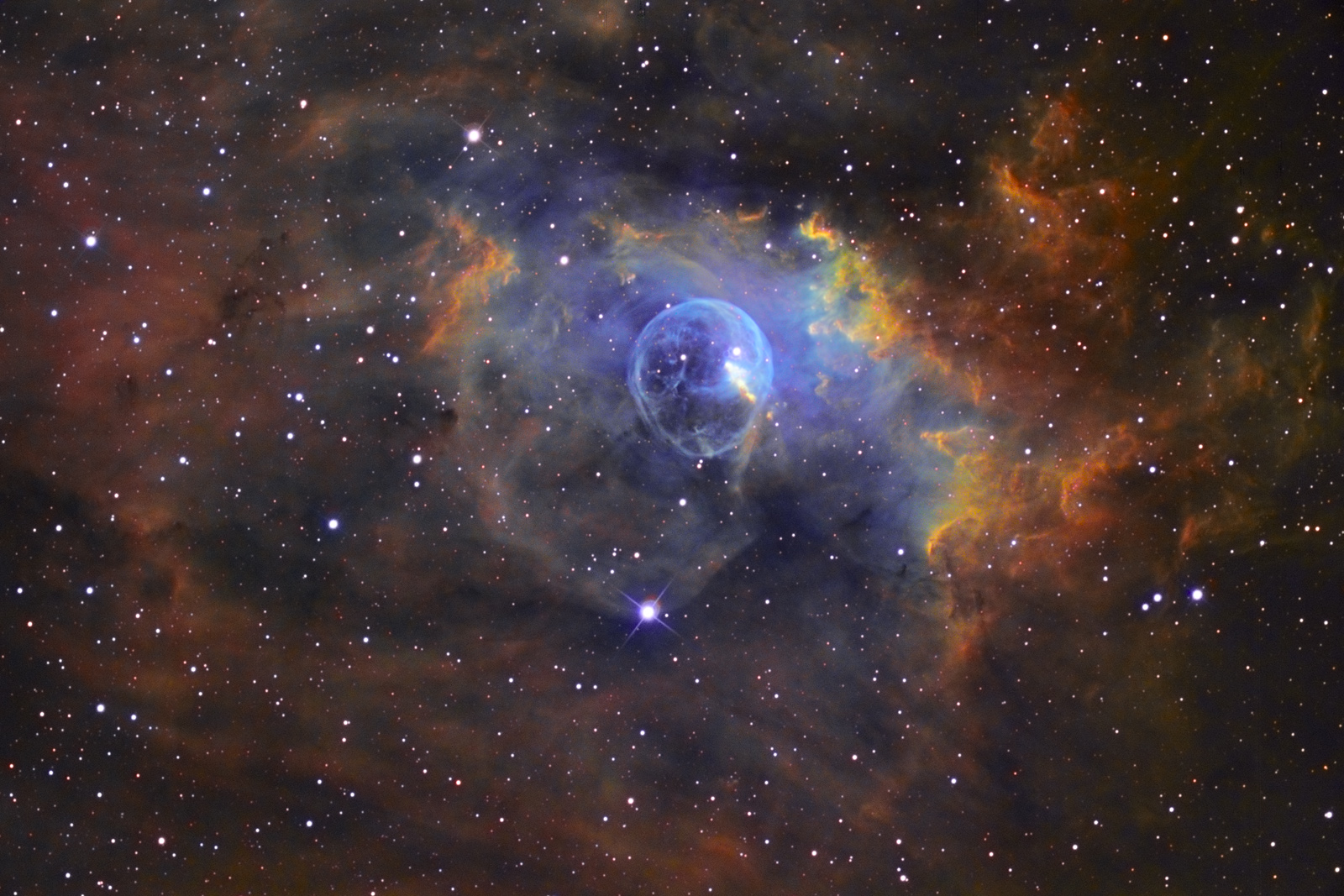
 J: So from 1965 to 1970 is a short decade, but there was a tie in there, so it was actually 7 books. And the first thing I notice about them right off is that they’re all science fiction. Various kinds of sf, but not a single fantasy in there.
J: So from 1965 to 1970 is a short decade, but there was a tie in there, so it was actually 7 books. And the first thing I notice about them right off is that they’re all science fiction. Various kinds of sf, but not a single fantasy in there.
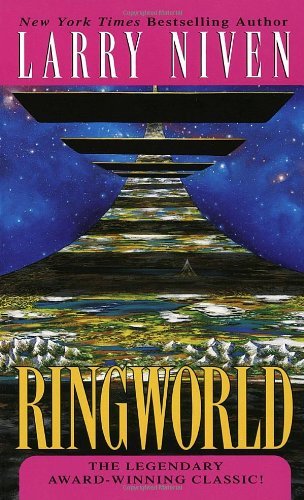
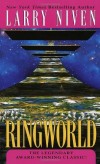 On his 200th birthday, Louis Wu is recruited by an alien to join an expedition to an unknown destination. The reward is the plans for a spaceship drive beyond anything the human race has yet invented. He and the other recruits soon discover their destination is Ringworld, a sort of modified Dyson sphere which consists of a single ring spinning around a sun. Louis, his girltoy, and two aliens soon crash into Ringworld and must try to discover just what it is, who made it, and how they can escape.
On his 200th birthday, Louis Wu is recruited by an alien to join an expedition to an unknown destination. The reward is the plans for a spaceship drive beyond anything the human race has yet invented. He and the other recruits soon discover their destination is Ringworld, a sort of modified Dyson sphere which consists of a single ring spinning around a sun. Louis, his girltoy, and two aliens soon crash into Ringworld and must try to discover just what it is, who made it, and how they can escape.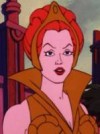 [At least I never slept with Prince Adam.]
[At least I never slept with Prince Adam.]
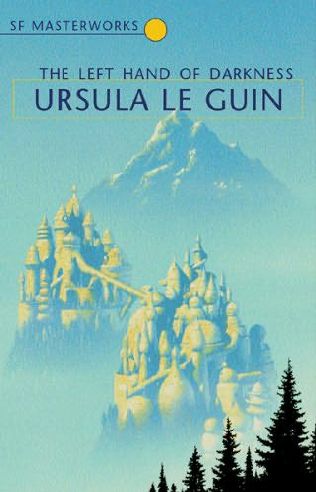
 First Mobile Genly Ai is on the planet Gethen, otherwise known as Winter, to convince the inhabitants to join the interplanetary Ekumen, for mutual benefit and exchange of ideas, etc. Coping with the harsh cold environment is the least of his problems, as he seems poorly equipped to deal with the planet’s governments and its people. The fact that they all exist in a non-gendered state most of the time, until they enter kemmer once a month when they can be come male or female, leaves him questioning his own masculinity.
First Mobile Genly Ai is on the planet Gethen, otherwise known as Winter, to convince the inhabitants to join the interplanetary Ekumen, for mutual benefit and exchange of ideas, etc. Coping with the harsh cold environment is the least of his problems, as he seems poorly equipped to deal with the planet’s governments and its people. The fact that they all exist in a non-gendered state most of the time, until they enter kemmer once a month when they can be come male or female, leaves him questioning his own masculinity.